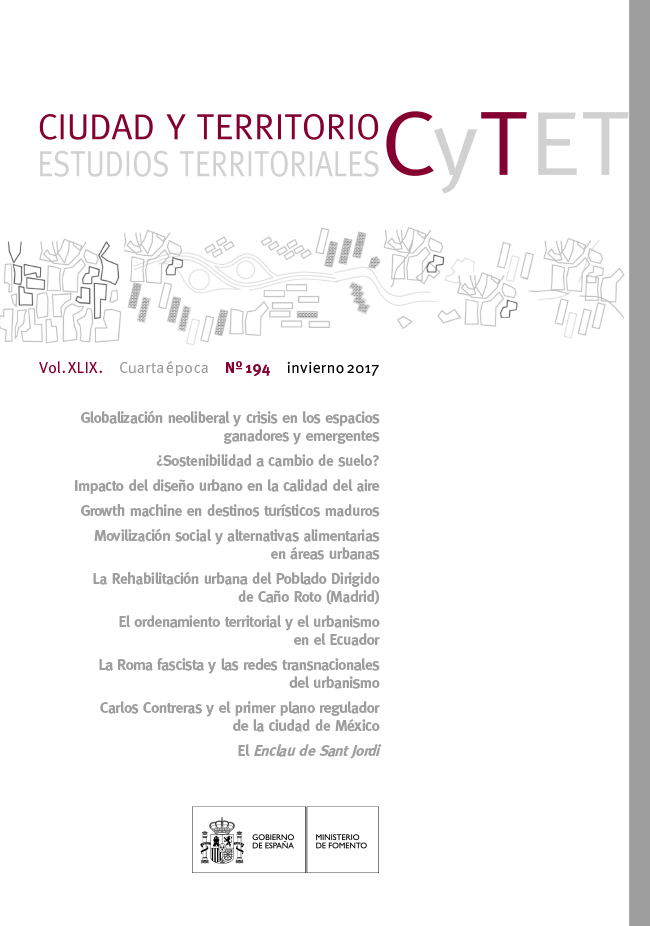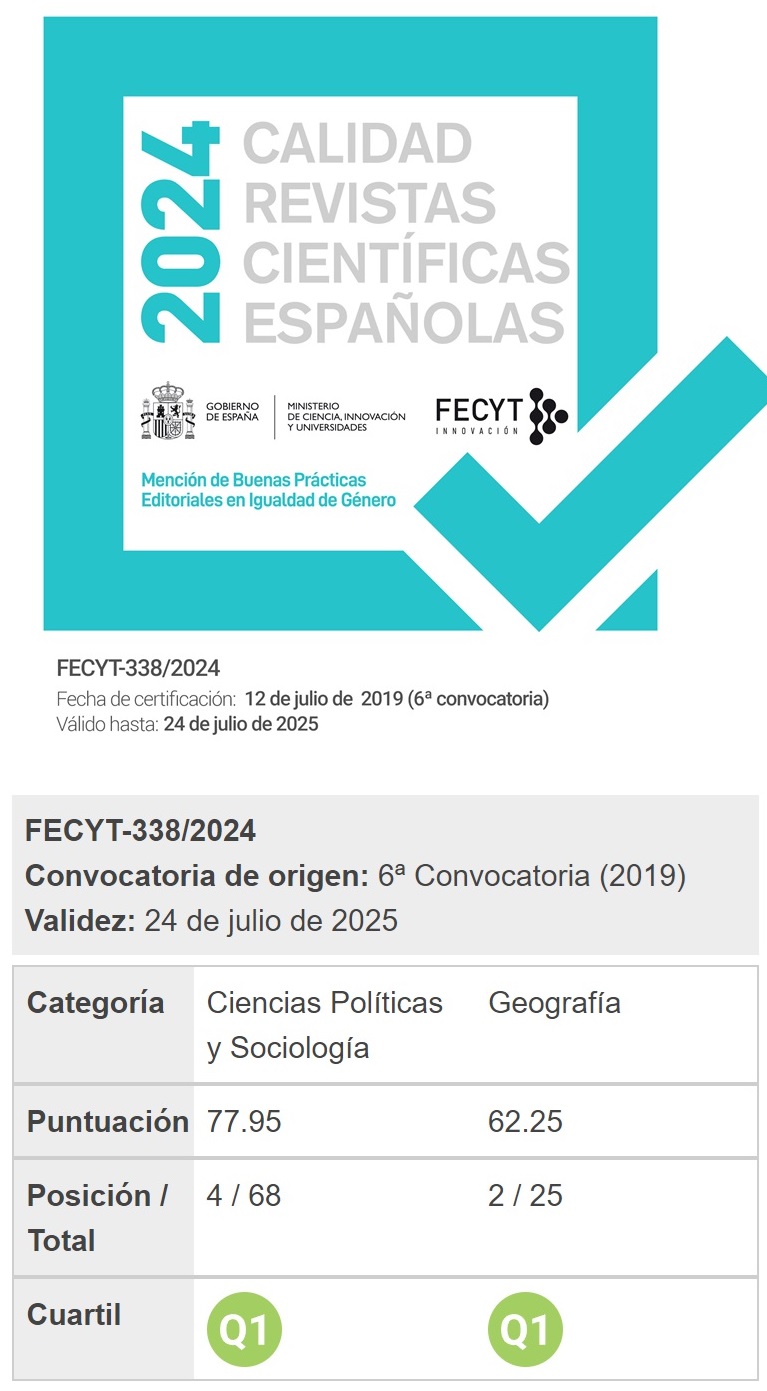La Roma fascista y las redes transnacionales del urbanismo: entre el ensimismamiento y la publicidad
Palabras clave:
International Federation for Housing and Town Planning (IFHTP), Roma, fascismoResumen
Los congresos organizados por la Internacional Federation for Housing and Town Planning a lo largo del siglo XX revelaron siempre los retos urbanísticos de sus ciudades anfitrionas. En 1929 Roma intentó, al mismo tiempo que acogía el XII Congreso, salir de su postergación urbanística con contradictorias políticas de intervención urbana en su centro histórico, a fin de conservar su rico patrimonio arquitectónico, y paradójicas propuestas de crecimiento metropolitano a través del alejamiento a la periferia de los elementos perturbadores, entre las que estaba la promesa de llevar a cabo una utopía urbana, plasmada en la construcción del EUR, y la descentralización territorial llevado a cabo en el Agro Pontino. Estas acciones marcaron la política fascista con respecto a la capital. Al mismo tiempo, Roma se convirtió en un objeto publicitario, donde las intervenciones urbanas que se habían llevado a cabo en la ciudad fueron presentadas como la expresión de una específica realidad económica, social y, por supuesto, política.
Descargas
Descargas
Publicado
Cómo citar
Número
Sección
Licencia
Derechos de autor 2017 María Cristina García-González, Salvador Guerrero

Esta obra está bajo una licencia internacional Creative Commons Atribución-NoComercial-SinDerivadas 4.0.
Sin perjuicio de lo dispuesto en la legislación vigente sobre Propiedad Intelectual, y conforme a la misma, el/la los/las autor/a/es/as que publiquen en CyTET cede/n a título gratuito, de modo no exclusivo y sin límite temporal al Ministerio de Transportes, Movilidad y Agenda Urbana los derechos para difundir, reproducir, comunicar y distribuir en cualquier formato actual o futuro, en papel o electrónico, la versión original o derivada de su obra bajo licencia de Creative Commons Reconocimiento-NoComercial-SinObraDerivada 4.0 Internacional (CC BY-NC-ND 4.0), así como para incluir o ceder a terceros la inclusión de su contenido en índices, repositorios y bases de datos nacionales e internacionales, con referencia y reconocimiento en todo caso de la autoría del mismo.
Además, al realizar el envío, el/la los/las autor/a/es/as declara/n que se trata de un trabajo original en el que se reconocen las fuentes que han sido utilizadas en su estudio, comprometiéndose a respetar la evidencia científica y a no modificar los datos originales para verificar o refutar una hipótesis de partida; que el contenido esencial del mismo no ha sido publicado previamente ni se publicará en ninguna otra obra o revista mientras esté en proceso de evaluación en la revista CyTET; y que no se ha remitido simultáneamente a otra publicación.
Los autores deben firmar un Formulario de Cesión de Derechos, que les será enviado desde la Secretaría de CyTET una vez se acepte su artículo para ser publicado.
Con el objetivo de favorecer la difusión del conocimiento, CyTET se adhiere al movimiento de revistas de Open Access (OA) y entrega la totalidad de sus contenidos a diversos índices, repositorios y bases de datos nacionales e internacionales bajo este protocolo; por tanto, la remisión de un trabajo para ser publicado en la revista presupone la aceptación explícita por parte del autor/a de este método de distribución.
Se anima a las/os autoras/es a reproducir y alojar sus trabajos publicados en CyTET en repositorios institucionales, páginas web, etc. con la intención de contribuir a la mejora de la transferencia del conocimiento y de la citación de dichos trabajos.








 Enlace a CyTET en Linkedin
Enlace a CyTET en Linkedin